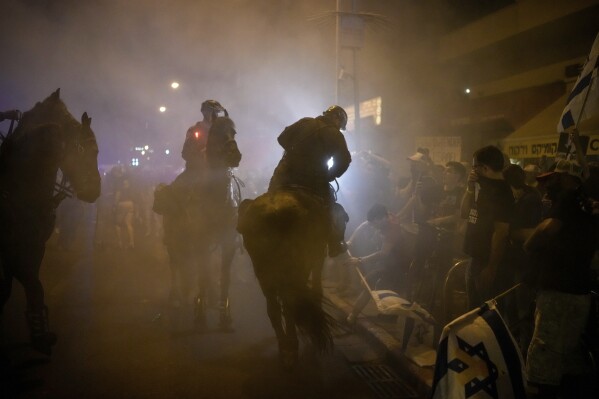Ukraine's War Has Become Life Versus Land. Which Will We Choose? | Opinion
When I began writing this piece, I promised myself to refrain from expressing my emotions. Periodical editors prefer articles that are not overly emotional, so I will be calm and reserved.
Anyway, I'll try.
Recently, I had to visit a major hospital in Kyiv. It was just a regular check-up, but I was feeling quite anxious. You know how it can be—you go in with a simple cough and come out diagnosed with lung cancer. I've heard a lot of stories like that, and I didn't want to become a part of one.
Once I stepped foot inside the hospital, all my worries vanished into thin air.
I saw injured soldiers everywhere. Maybe there were officers at the hospital as well, but these men were so young—boys really.
They were being moved around in wheelchairs and walked supported by the arms of paramedics. It seemed that nearly everyone had either an arm or a leg missing. Some were missing both legs. There were lads with bandages covering their eyes. The more fortunate ones managed to hobble around on crutches unaided.
There were so many of them. They had sacrificed their limbs, eyes, their bodies to protect their country, the millions of Ukrainians behind the front lines. My family. Me.
I made a commitment at the beginning of this article to stay rational and avoid emotions, so I'll focus on the cold calculus next. There is no need to reveal military secrets. The horrible toll is publicly available.
Russia has lost more than 500,000 soldiers—killed and wounded—in Ukraine since the invasion began, according to a Facebook post by the general staff of the Ukrainian Armed Forces on May 25.
A rule of thumb is that you need a three-to-one advantage to successfully attack a dug-in foe, and it does seem that Ukrainian losses are considerably smaller, with President Volodymyr Zelensky claiming in February that 31,000 Ukrainians had been killed. Others make out the toll to be considerably higher.
Let's consider the widely accepted statistic that two to four soldiers are wounded for every one killed in war. Assuming that half of the wounds are minor and can be treated, we are still left with the other half who are severely injured and suffering from shell shock. That toll could easily reach into the hundreds of thousands.
Among the injured soldiers at the hospital, I didn't feel the need to calculate anything. The sight of the men in front of me was quite enough to bring home to me the scale of Ukrainian suffering.
With millions of male refugees and men facing mobilization due to the long-term war, we are witnessing a great catastrophe, in Ukraine and—it must be admitted—in Russia as well. The social, economic, and even demographic impacts will not be fully felt for years.
In my effort to steer clear of sentiment, I'll just tell you how my visit to the Kyiv hospital ended.
While I stood by the entrance to the MRI lab, I saw a nurse pushed a soldier in a wheelchair down a deserted hallway. He glanced at his phone, then abruptly instructed her to leave him be. She kindly reassured him not to be nervous, but he insisted more firmly. With a shrug, she exited the corridor.
Now, the soldier sat by himself in his wheelchair next to the window. He wore a black T-shirt with the Ukrainian trident and a pair of shorts. With both legs missing, he had a single prosthesis that gave him the appearance of a cyborg from a science fiction movie. He looked at his phone for a minute or two, then pressed the call button and held the phone to his ear. I wondered to whom he was speaking—his mother, wife, girlfriend, or sister?
He yelled at the woman at the other end of the phone, insisting, "Don't you even think about pitying me" repeatedly.
I felt useless and unsure of how to react.
The soldier glanced at me and lowered his voice. "I'm fine," he said into the phone. "I'm not whining, so you don't whine, too. Life goes on. I'm a lucky guy, ain't I? I'm here alive while my brothers are dying there. Stop crying and don't bother comforting me.
The young man was both alone and one among the hundreds of thousands.
As he adapted to his newfound status, other young and not-so-young men were engaged in a relentless battle across a 600-mile front, losing their lives and health with each passing day, hour, and moment.
I'm not involved in politics, so I don't have to be calculating and cynical. It saddens me to consider that countless soldiers will die before politicians acknowledge the urgency in ending the violence and sitting down for peace talks.
Wars inevitably come to an end, yet the human toll they exact is permanent. It is an irreversible tragedy. This is precisely why I will never call for war to the bitter end. When faced with the choice between land and human lives, I will always choose the people.
Politicians have different priorities, and it means that Ukraine will unfortunately keep losing its best for the foreseeable future. It's truly heartbreaking to think about.
However, I promised you, dear reader, not to cry, right? But if I do not, will you?
Sergey G. Maidukov Sr. is a Ukrainian writer, author of Life on the Run and Deadly Bonds. Follow @sergeymaidukov on Instagram.
The views expressed in this article are the writer's own.
Disclaimer: The copyright of this article belongs to the original author. Reposting this article is solely for the purpose of information dissemination and does not constitute any investment advice. If there is any infringement, please contact us immediately. We will make corrections or deletions as necessary. Thank you.


